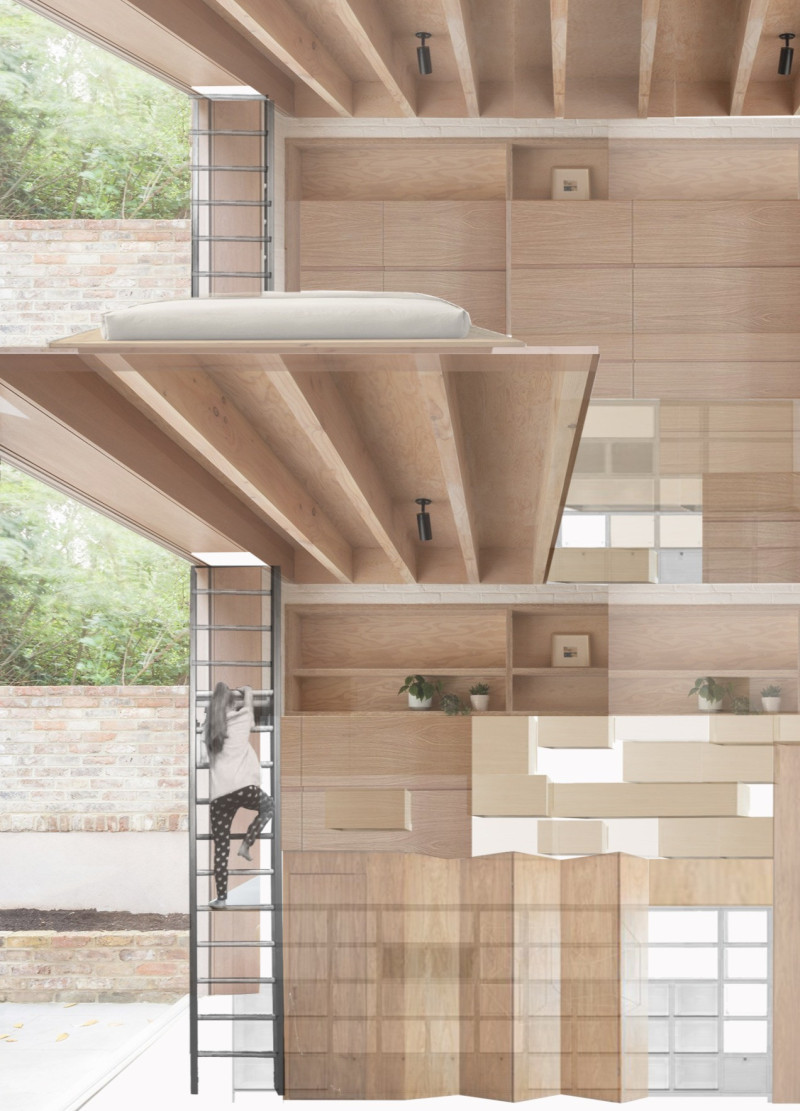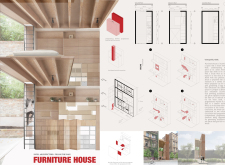5 key facts about this project
The primary function of the Furniture House is to serve as a compact living space, emphasizing flexibility and efficiency. It caters to the modern urban dweller by providing a versatile environment where furniture doubles as architecture, blurring the lines between immovable structures and movable objects. This duality promotes a dynamic living experience, allowing for the personalization and reconfiguration of spaces according to individual preferences.
Unique Design Approaches
One of the notable aspects of the Furniture House is its emphasis on modularity. Each furniture piece serves multiple purposes, enhancing functionality without compromising aesthetics. This modular approach allows for easy rearrangement, ultimately making the space more responsive to the occupants' lifestyle changes.
Vertical space utilization is another distinguishing feature. The design includes elevated areas for sleeping and storage, maximizing the vertical dimensions of the structure. Ladders and open spaces facilitate movement, enhancing connectivity within the home. This vertical orientation not only provides a sense of spaciousness but also encourages light penetration through ample glass elements.
Moreover, the material selection plays a crucial role in the project. Plywood is utilized for cabinetry and flooring, offering durability and warmth. Glass elements are strategically incorporated to foster natural light and integrate with the surrounding environment. Steel supports provide necessary structural integrity while maintaining a minimalist aesthetic.
Sustainability and environmental integration are also central to the project. The use of natural materials and extensive glazing creates a symbiotic relationship with the outdoor landscape, ensuring that the living space reflects its surroundings.
The Furniture House is a thoughtful response to contemporary urban living needs. For further details, including architectural plans and design insights, readers are encouraged to explore the project's presentation to deepen their understanding of its architectural design and features.























